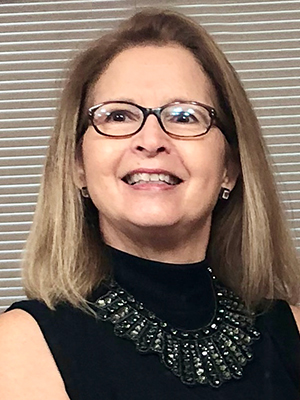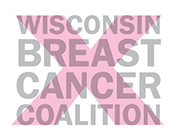 By Linda Hansen
By Linda Hansen
May 7, 2025, was 15 years from the day that my metastatic breast cancer (MBC) reared its ugly head in my life. Suddenly my life became divided into two parts: before and after MBC. Before, I was a successful professional, working hard, traveling the world, and making a good salary. I spent my free time with my three daughters and my friends. I enjoyed every minute and was looking forward to many more years of working and watching my daughters grow. After my diagnosis, all I could think of was my death, and all the things that I would miss. I wrote my obituary and planned my funeral.
Telling my daughters (ages 17 to 24) about my diagnosis was the hardest thing I’ve ever done. We all sat, terrified, looking at one another, and wondering about the future. They were supportive, letting me know that they loved me and would be there for me no matter what happened. Three days later was port surgery, and I was ready for chemo.
Knowing that there was no cure for MBC, I told my oncologist at our very first meeting that I wanted to fight as hard as I could so that I might live a long as possible. He agreed. I had six months of chemo followed by a mastectomy and then radiation. Following all of that, I went in for scans. I was terrified when I met with my oncologist for the scan results. I didn’t know that “scanxiety” would continue with every scan I got as the years went by. My doctor looked at me, smiled, and told me that my cancer had disappeared, even my liver mets. I breathed a huge sigh of relief as I took in the great news. I was officially NED (no evidence of disease). Unfortunately, I realized that I would go through the same scanxiety in three months, and then three months after that, and then three months after that, and then . . . you get the idea. For some unknown reason, every scan since that first one post-treatment has remained clear, and I am still NED on Herceptin, my first line of treatment.
Part of me is thrilled to be alive after 15 years of MBC. After all, once I knew I had MBC, I didn’t expect to live long. At the time of my diagnosis, Dr. Google told me I had 18-24 months to live. I’m still on my first line of treatment, and as an exceptional responder, my oncologist believes that I will be alive for many more years. Since my MBC diagnosis I’ve watched two daughters finish their doctorates, get married, and buy houses, and I’ve been present for the birth of my granddaughter. I would have missed all of that if Dr Google had been right about my life expectancy. Then again, I also experienced the loss of my middle daughter from a seizure disorder at the age of 32.
Being a “unicorn” because of my long tumor-free life has been like winning the lottery. But sometimes I feel like a fraud when someone with MBC tells me that I’ve given them hope. Don’t get me wrong, hope is important when fighting MBC. Hope is what got me through the dark days after my diagnosis. But when I encourage others to hope, I also know that their chance of living 15 years NED is small. Half of them will die before three years pass.
I’ve made many friends in the MBC community. We’ve compared side effects, discussed the best way to handle fatigue, commented on wigs that itch, ports that malfunctioned, pharmacists who refuse to fill pain medication prescriptions, mastectomy scars, and the constant concern about where the nearest restroom is located. We’ve laughed together, complained together, and mourned together. The only problem with this group of wonderful women supporting one another as we all deal with MBC is that most don’t live very long. The death notifications come all too frequently. Suddenly, another friend is gone. It’s not only difficult to lose so many friends, but the mourning is accompanied with the recognition that someday it will be my death notice on the website.
Another difficult part about being a unicorn is survivor’s guilt. Why am I here when so many of my friends aren’t? Why are so many young women dealing with MBC? I was 54 when I was diagnosed. I’d lived a wonderful life, raised wonderful, independent children. I had the opportunity do so much, and these young women had been able to do so little. Some were pregnant or had infants when they were diagnosed. Some were engaged and planning weddings. Why was I the exception to the rule, and they were not? I hadn’t done anything to put myself into the group of exceptional responders. I break all the rules about surviving with MBC. I stopped exercising when I was diagnosed. If I was dying of MBC, why spend my time sweating in a gym? I stopped eating right because I was no longer concerned about my weight, and I love all the stuff that’s supposed to be bad for us. Dessert anyone? I started drinking because . . . why not? Yet I have survived when others didn’t. I feel guilty because others did everything they were told to do, yet I continue to survive. I feel loss and shame whenever another woman dies from MBC. Why them? I can’t really complain about that to my MBC friends. Because they are dealing with a reality that hasn’t fully touched me.
Linda Hansen is a breast cancer advocate and WBCC Policy Committee chair.
